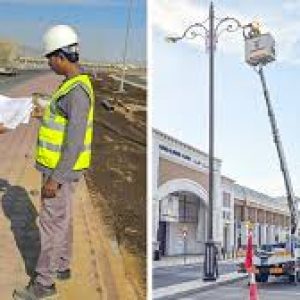As the holy month of Ramadan approaches, the United Arab Emirates (UAE) has officially announced reduced working hours for both public and private sector employees. The initiative aims to support employees observing Ramadan while maintaining productivity across industries. This adjustment, a well-established practice in the UAE, underscores the nation’s commitment to fostering a balanced work-life environment, particularly during the sacred month.
Official Work Timings for Public Sector
The UAE’s Federal Authority for Government Human Resources (FAHR) has issued a circular confirming that government employees will work from 9:00 AM to 2:30 PM, Monday to Thursday, and from 9:00 AM to 12:00 PM on Fridays. These reduced hours aim to accommodate fasting employees while ensuring the smooth operation of essential public services.
Private Sector Adjustments
For the private sector, the Ministry of Human Resources and Emiratisation (MoHRE) has mandated a two-hour reduction in daily working hours. However, specific adjustments may vary depending on company policies, industry requirements, and individual employment contracts. Businesses that require extended operational hours are encouraged to offer flexible shifts, remote working options, and alternative arrangements to support their employees.
Remote and Hybrid Work Policies
Following the trend set in previous years, many UAE government entities have embraced hybrid and remote work arrangements, particularly on Fridays. Employees in eligible roles can work remotely, ensuring they can balance their professional and spiritual obligations during Ramadan. The private sector is also encouraged to adopt similar practices where feasible.


Impact on Economic Sectors
Reduced working hours during Ramadan have implications for various industries. Retail, hospitality, and food and beverage businesses typically experience an increase in evening foot traffic as fasting employees and families gather for iftar meals and shopping. Financial institutions, logistics, and essential services remain operational, with businesses adapting shift patterns to maintain efficiency.
Workplace Accommodations for Employees
To enhance employee well-being, organizations are encouraged to introduce workplace accommodations such as:
- Flexible work schedules to help employees manage their energy levels while fasting.
- Designated prayer and relaxation areas to support religious practices.
- Encouraging shorter meetings and lighter workloads where possible.
- Offering well-being programs to promote mental and physical health during Ramadan.
Public Sentiment and Employee Reactions
Employees across various sectors have welcomed the announcement, citing the importance of balancing work commitments with spiritual observance. Many fasting individuals highlight how reduced hours allow them to focus on personal reflection, prayer, and family time while maintaining workplace efficiency.
Employers have also expressed their support for the decision, noting that a well-rested and spiritually fulfilled workforce contributes to overall morale and productivity. Organizations that have previously implemented flexible work arrangements during Ramadan have reported increased employee satisfaction and engagement.
Comparative Analysis with Other Gulf Countries
The UAE’s approach to Ramadan work hours is in line with neighboring Gulf Cooperation Council (GCC) countries, where similar adjustments are made. Saudi Arabia, Qatar, and Kuwait also enforce reduced working hours for both public and private sector employees, typically ranging from 5 to 6 hours per day. These measures are part of broader efforts to accommodate the spiritual significance of Ramadan while ensuring business continuity.
Government and Religious Leaders’ Perspective
UAE officials and religious leaders have commended the initiative, emphasizing the importance of creating an environment where individuals can practice their faith while contributing to national development. The government continues to stress the importance of productivity, innovation, and employee well-being, reinforcing its reputation as a progressive and inclusive workplace environment.
Conclusion
The announcement of reduced working hours for Ramadan 2025 reaffirms the UAE’s commitment to supporting its workforce while respecting cultural and religious values. By fostering an adaptable and employee-friendly work culture, the UAE continues to set a benchmark for balancing business productivity with spiritual observance. As organizations implement these changes, the focus remains on enhancing employee well-being, efficiency, and overall workplace harmony during the holy month.
Do follow Uae stories for more Updates
Dubai Police Bust Illegal Massage Card Network, Shut Presses









